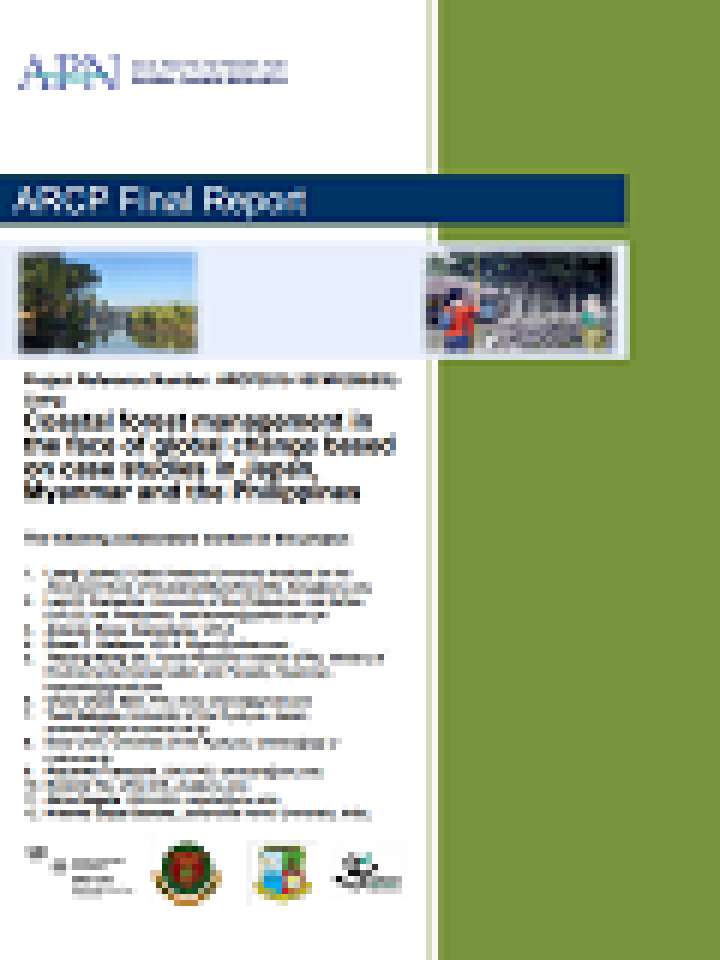Coastal forest management in the face of global change based on case studies in Japan, Myanmar and the Philippines
The project examined policy impact on coastal forest management and community-based forest management, including local knowledge to recommend best practices of coastal forest management, integration with human settlement planning and facilities to strengthen community resilience to climate change impacts. It also assessed potential benefits of coastal forests in adaptation to and mitigation of climate change in addition to local livelihoods in food, medicines, construction and spiritual needs. The comparative perspective addressed how different countries and local communities facing a common challenge manage coastal forests and harness the regulating service of forests in adapting to climate change impacts under similar bio-physical conditions, but different socio-economic contexts.
The project conducted policy reviews and case studies research in vulnerable coastal communities of three countries, namely the Philippines (Bohol and Palawan Province), Myanmar (Ayeyawady Delta) and Japan (Okinawa), assessed the effectiveness of bottom-up approaches, extracted lessons and identified needs of relevant policies for coastal forest management.
The results of three country studies are compared and synthesized as a solid basis for policy recommendations and developing a wider network of coastal forest management beyond participating countries.
Explore further
